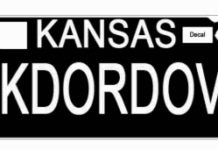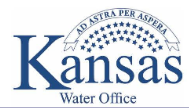From the Office of Public Affairs | http://www.news.ku.edu
Headlines
KU center to bring festival celebrating Eastern European and Eurasian culture to downtown Lawrence
LAWRENCE — The Center for Russian, East European & Eurasian Studies at the University of Kansas will hold its annual Spring Festival on March 3 at Liberty Hall in downtown Lawrence. The free public festival brings Russian, Eastern European and Eurasian culture to Lawrence by providing music, dance, food and crafts from the region.
New books examine how to foster meaningful interactions between students, faculty to bolster college success
LAWRENCE — Two new books co-written by a University of Kansas education researcher examine how to move beyond the conventional measures of student-faculty interactions to consider new ways of building meaningful relationships between educators and pupils. Eugene T. Parker III, associate professor of educational leadership & policy studies, co-edited “Fostering Sustained Student-Faculty Engagement in Undergraduate Education” and “Promoting Meaningful Student-Faculty Experiences in Graduate Education,” both published by Routledge.
Full stories below.
————————————————————————
Contact: Megan Luttrell, Center for Russian, East European & Eurasian Studies, megan.luttrell@ku.edu, @KUCREES
KU center to bring festival celebrating Eastern European and Eurasian culture to downtown Lawrence
LAWRENCE — The Center for Russian, East European & Eurasian Studies (CREES) at the University of Kansas will have its annual Spring Festival on March 3. The festival brings Russian, Eastern European and Eurasian (REE) culture to Lawrence by providing music, dance, food and crafts from the region.
The free public event, which will take place at Liberty Hall in downtown Lawrence, shares the beauty of these cultures with the community, and CREES hopes to inspire more people to learn about this often misunderstood region.
The festival will have free food from the REE region, live performances, a photobooth, door prizes, a craft area and more.
Performances will include live music by Hrvatski Običaj, a 20-piece Croatian band featuring traditional stringed instruments. The group, which also performed at the 2023 festival, is dedicated to preserving Croatian national music.
There will also be a performance by Mavka, who will perform both Ukrainian folk dance and character dance. Mavka is a Ukrainian dance company united in love for Ukraine, dance and performing.
Last year, the Spring Festival had so many attendees that it became clear the event had outgrown its usual venue. Through sponsorship from local businesses, CREES will have the Spring Festival at Liberty Hall, 644 Massachusetts St. Local sponsors include the KU Office of Diversity, Equity, Inclusion & Belonging; Central Bank, Summit’s Steps Minerals, Kizer Cummings Jewelers and Pane e Vino Wine Bar & Academy.
For more information about CREES or the Spring Festival please visit the CREES department site or Facebook page.
-30-
————————————————————————
Don’t miss new episodes of “When Experts Attack!,”
a KU News Service podcast hosted by Kansas Public Radio.
https://kansaspublicradio.org/when-experts-attack
————————————————————————
Contact: Mike Krings, KU News Service, 785-864-8860, mkrings@ku.edu, @MikeKrings
New books examine how to foster meaningful interactions between students, faculty to bolster college success
LAWRENCE — Two new books co-written by a University of Kansas education researcher examine how to move beyond the conventional measures of student-faculty interactions to consider new ways of building meaningful relationships between educators and pupils.
Eugene T. Parker III, associate professor of educational leadership & policy studies at the University of Kansas, and Teniell L. Trolian of the State University of New York – Albany, have dedicated nearly a decade of research to better understand how students and faculty interact in higher education and how that affects student success. They noticed literature in the field tended to focus largely on frequency of those interactions. The result is two books that consider college environment, different types of interactions and the quality of those experiences to help educators provide meaningful engagement.
Engagement in undergraduate education
Trolian and Parker co-edited “Fostering Sustained Student-Faculty Engagement in Undergraduate Education.” The book brings together educators and scholars to discuss how to improve and foster student-faculty interactions in four parts:
Frameworks for thinking about student-faculty engagement.
Student-faculty experiences that improve undergraduate outcomes.
Student identities and student-faculty engagement.
Student-faculty experiences in the undergraduate classroom.
Traditional research that focuses largely on frequency of student interactions with faculty only looks at part of the experience, according to the editors and authors.
“During college, students are hopefully transformed in some way by the environment, which leads to positive outcomes,” Parker said. “We look at how student-faculty interactions influence or impact things like degree aspirations, sense of belonging and perceptions of the environment.”
The editors urge educators to first consider student identities, including race, religion, age, socioeconomic status, veteran or disability status, if they are first generation college students and more.
Further, faculty should consider their interactions with students beyond the traditional lens of experiences in the classroom or during office hours, the editors wrote. That could include feedback on students’ work, how they communicate outside of the class, providing services such as letters of recommendation or even social interactions. And instead of simply considering frequency of interactions as a sort of quota to meet, editors said quality of interactions must be considered as well.
“We want students to have positive interactions, and we want to make sure it’s not just minimizing interactions that might be negative, but providing the types of experiences that foster success,” Parker said.
To that end, authors contribute chapters on considering new modalities of interactions. Today’s students have learned remotely during the pandemic and virtually in ways that were unavailable just a few years ago. Faculty can therefore be accessible in ways including video conferencing that can be both convenient and meaningful for students.
The book’s contributors also encourage faculty to look beyond student identities. In fact, they should consider their own identities and experiences in shaping their engagement with students.
“One thing we’ve learned is that we need to work toward sustained engagement instead of just one or two interactions here or there,” Parker said. “Building those relationships can allow students and faculty to be comfortable enough to have critical conversations together. We also need to think about faculty members. When we have conducted research on student-faculty interactions, it’s largely been surveys of students’ experiences, but not of the faculty. That’s something we need to consider more.”
The book closes in encouraging faculty to consider student outcomes beyond the traditional measures of grade-point average or graduation rates. Students’ sense of belonging, perceptions of campus environment, psycho-social well-being and how interactions affect each of those are meaningful as they can all influence the more traditional measures. Parker said post-college measures beyond employment, such as civic engagement and long-term mental health, hold value as well.
Meaningful experiences in graduate education
Students who have continued their education to graduate level courses also benefit from sustained, quality engagement with faculty. To that end, Parker and Trolian co-edited “Promoting Meaningful Student-Faculty Experiences in Graduate Education.”
The book also brings scholars from across the country to contribute chapters on fostering meaningful engagement, in this volume in three parts:
Curriculum and teaching.
Identity and experiences.
Graduate student mentoring.
“There are similarities in interactions, but there are also some key differences,” Parker said. “In graduate contexts, it’s very discipline-specific. In many fields, for example, it will be research heavy and require a greater emphasis on mentoring, considering how closely faculty and students work together on research. Mental health is also key.”
Both works, published by Routledge, are part of Parker and Trolian’s work to build a conceptual map of the facets of student-faculty interactions. Such a map can not only help faculty find their way to providing meaningful interactions, but to understand there is no single route that will ensure success.
“We are not attempting to provide a one-size approach that will work for everyone,” Parker said. “We need to understand that every student is different and be malleable and adjustable in our approaches.”
-30-
————————————————————————
KU News Service
1450 Jayhawk Blvd.
Lawrence KS 66045
Phone: 785-864-3256
Fax: 785-864-3339
kunews@ku.edu
http://www.news.ku.edu
Erinn Barcomb-Peterson, director of news and media relations, ebp@ku.edu
Today’s News is a free service from the Office of Public Affairs





